Difference between revisions of "Template:T8S Pan Aux"
m |
m (link to T8S Aux Send Channel Inputs to Different Aux Outputs) |
||
| Line 48: | Line 48: | ||
[[File:Pan Aux 5.jpg|link=|800px]] | [[File:Pan Aux 5.jpg|link=|800px]] | ||
| + | Please see [[T8S Aux Send Channel Inputs to Different Aux Outputs]] for a detailed example. | ||
---- | ---- | ||
[[Category:T4S]] | [[Category:T4S]] | ||
[[Category:T8S]] | [[Category:T8S]] | ||
Revision as of 07:59, 6 January 2019
This is an overview of using the Aux Outputs on the T4S and T8S ToneMatch® mixers. You can use the Aux outputs for monitors, remote speakers, or recording.
The steps are the same for the T8S and T4S.
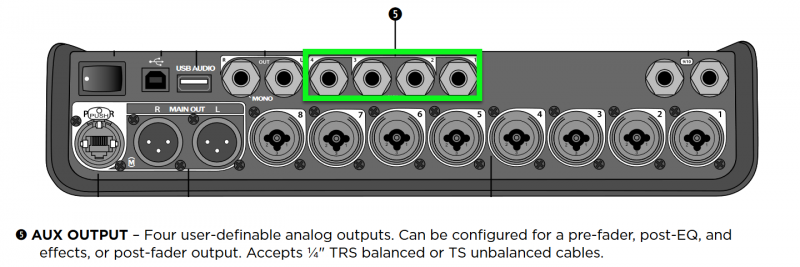
T4S
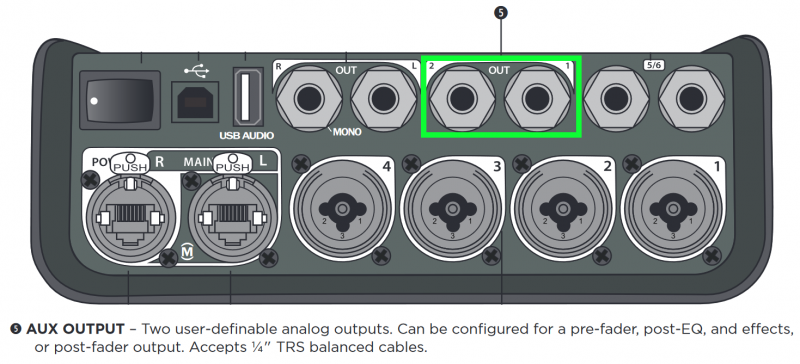
- Setting up monitors example
Connect your monitors to the T8S Aux Outputs. On the T8S you have four Aux Outputs. You can direct any channel to one of the Aux Outputs to create a monitor mix. As you assign a channel to an Aux Output, you can set the level and make the Aux send from the channel:
- Dry : After Preamp
- The only control that has an effect on the signal is the channel trim.
- Pre : With EQ and FX
- All settings for Preset, zEQ, ParaEQ, effects are sent through to the Aux output. The volume is controlled by the Level setting in this menu. Volume is not affected by the channel volume control. Reverb available for Aux 1 output only.
- Post : After Fader
- The volume is controlled by the channel volume control.
Select a Channel you want to direct to one of the Aux outputs. In the image below the Channel 1 CH Edit button is selected.
Turn the Rotary Selector to PAN/AUX
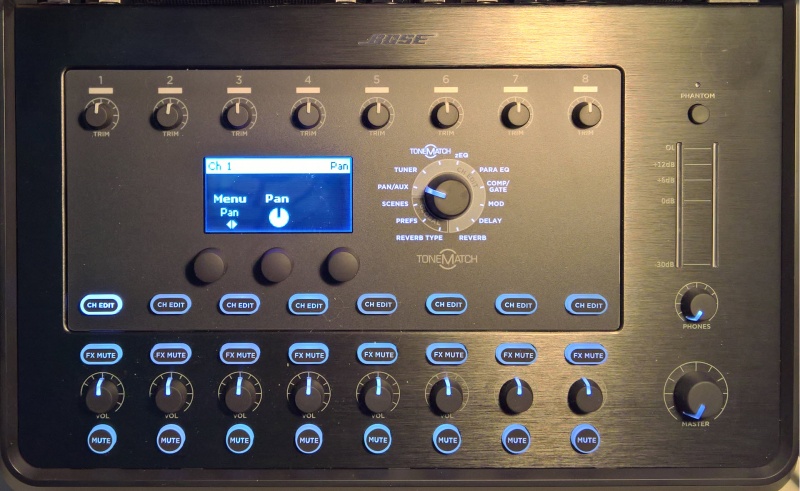
Turn the left most button under the display Menu to see your options. You can choose Pan, Aux Input, or one of the Aux Outputs
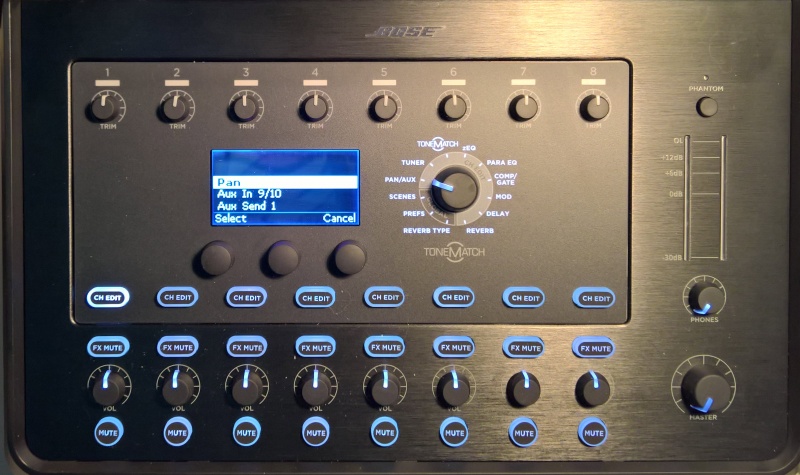
This is how it looks on the T8S when you turn the menu far enough to see all four Aux Outputs. On the T4S there are two Aux Outputs.
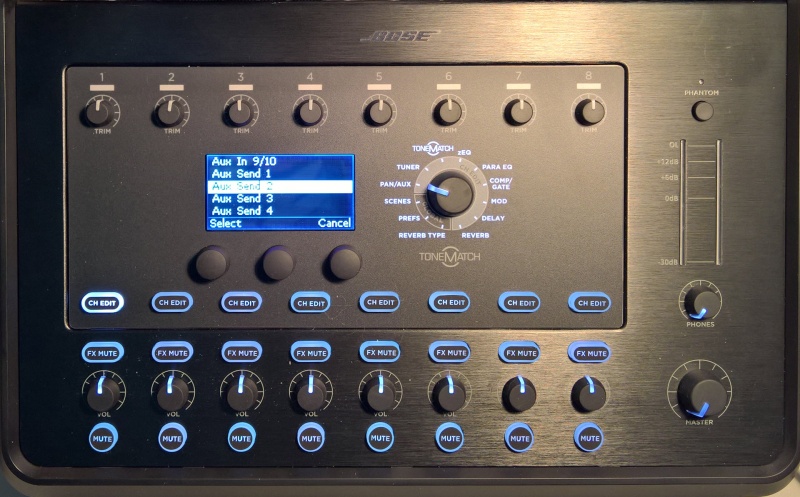
In this picture we have chosen to direct Channel 1 to Aux 1. The level is 50% and the Tap is set to Pre
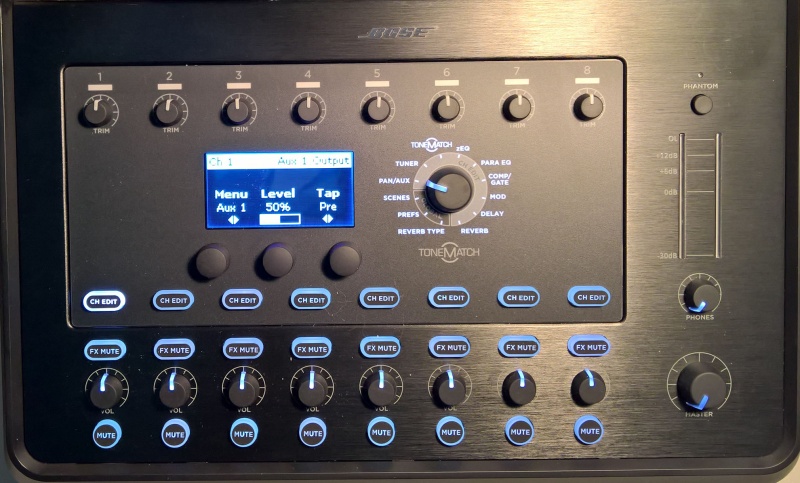
In this picture, Aux 1 is selected and you can choose if you want the Tap point to be Dry, Pre, or Post
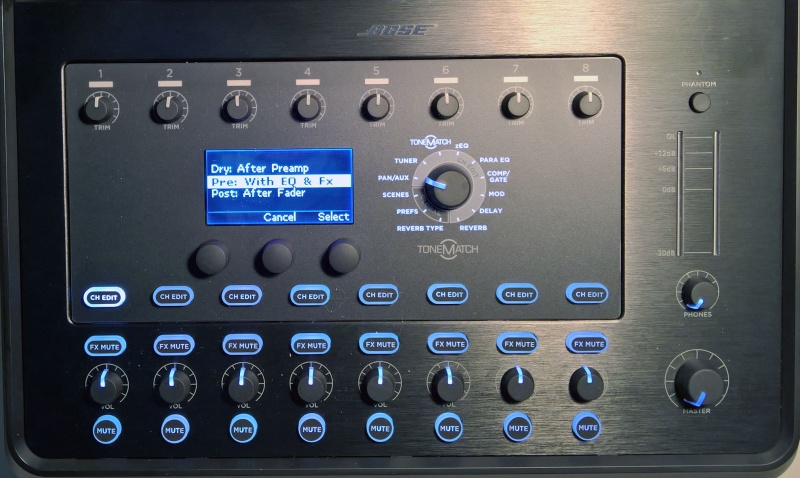
Please see T8S Aux Send Channel Inputs to Different Aux Outputs for a detailed example.